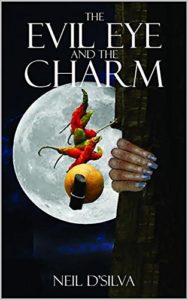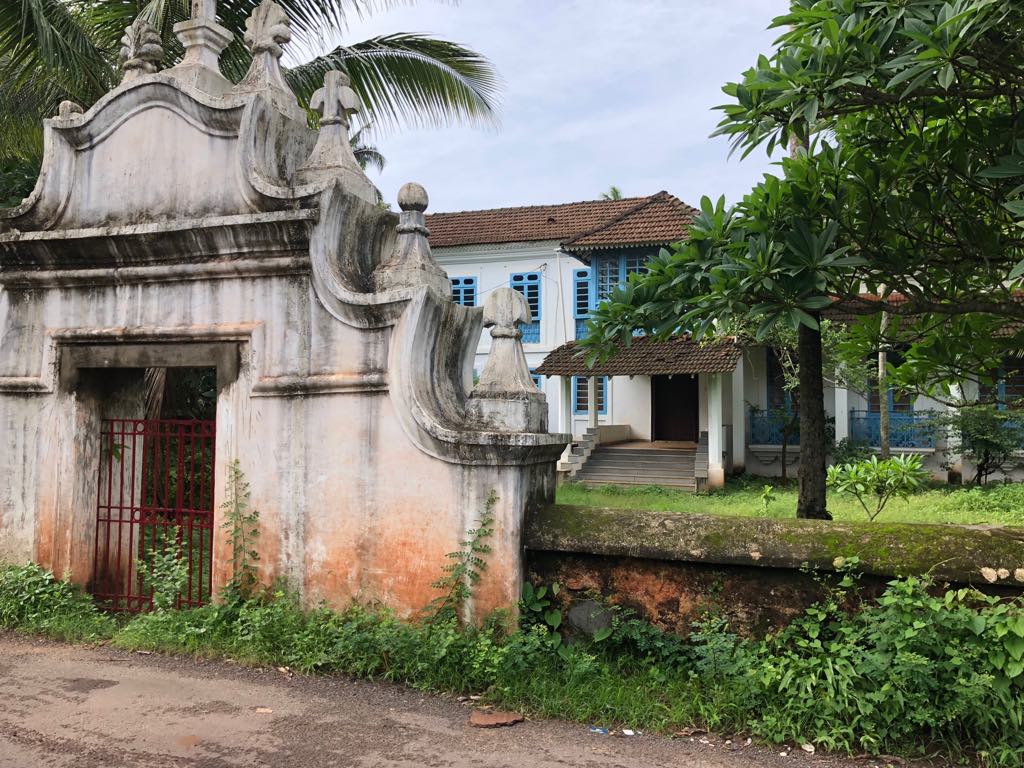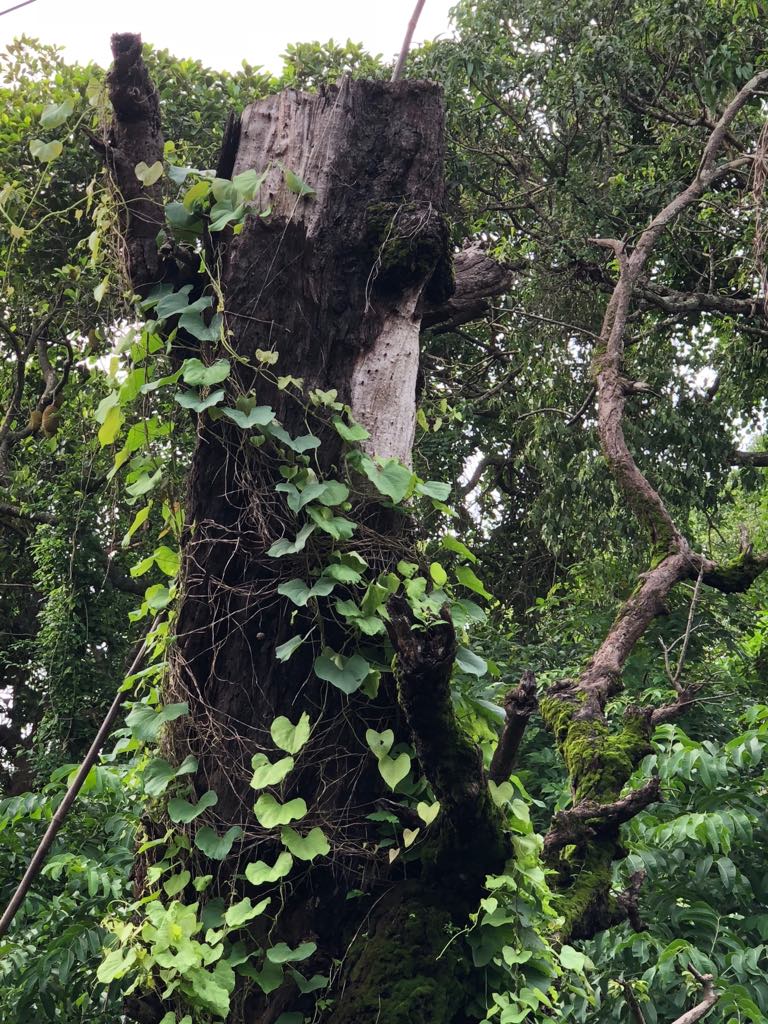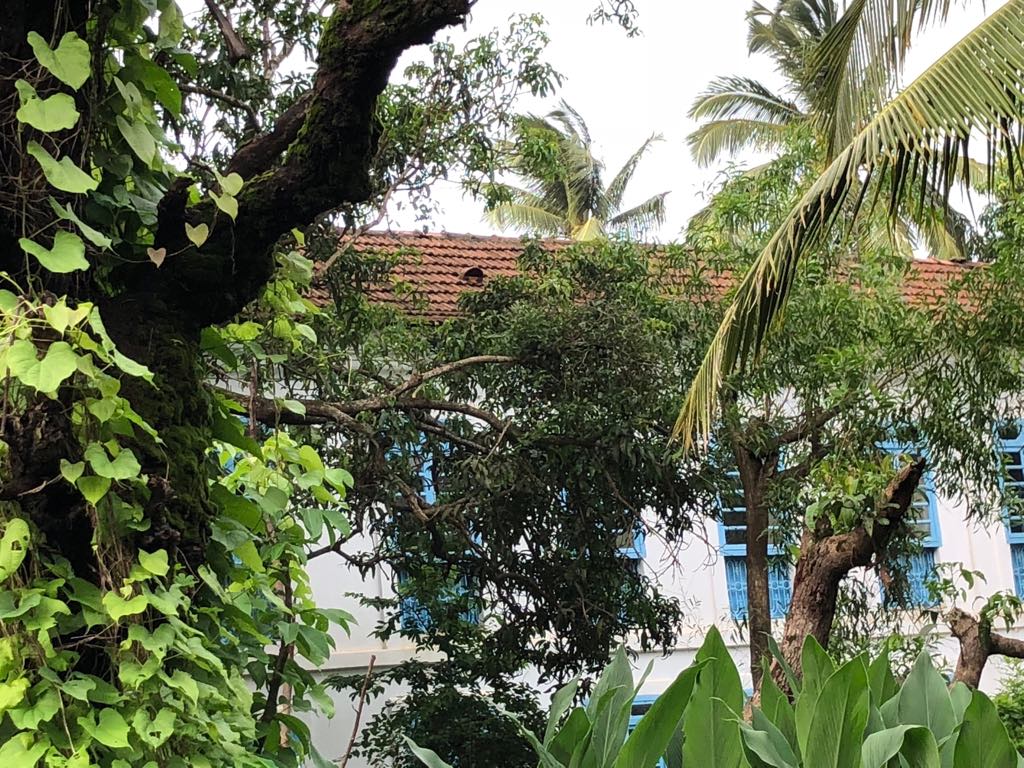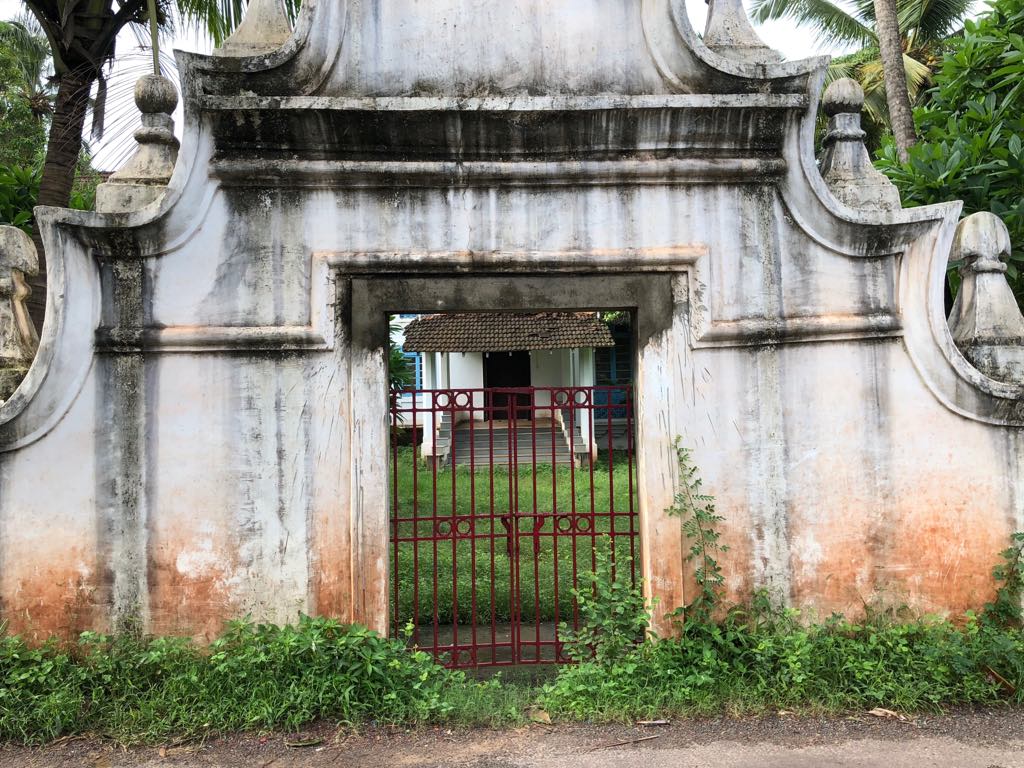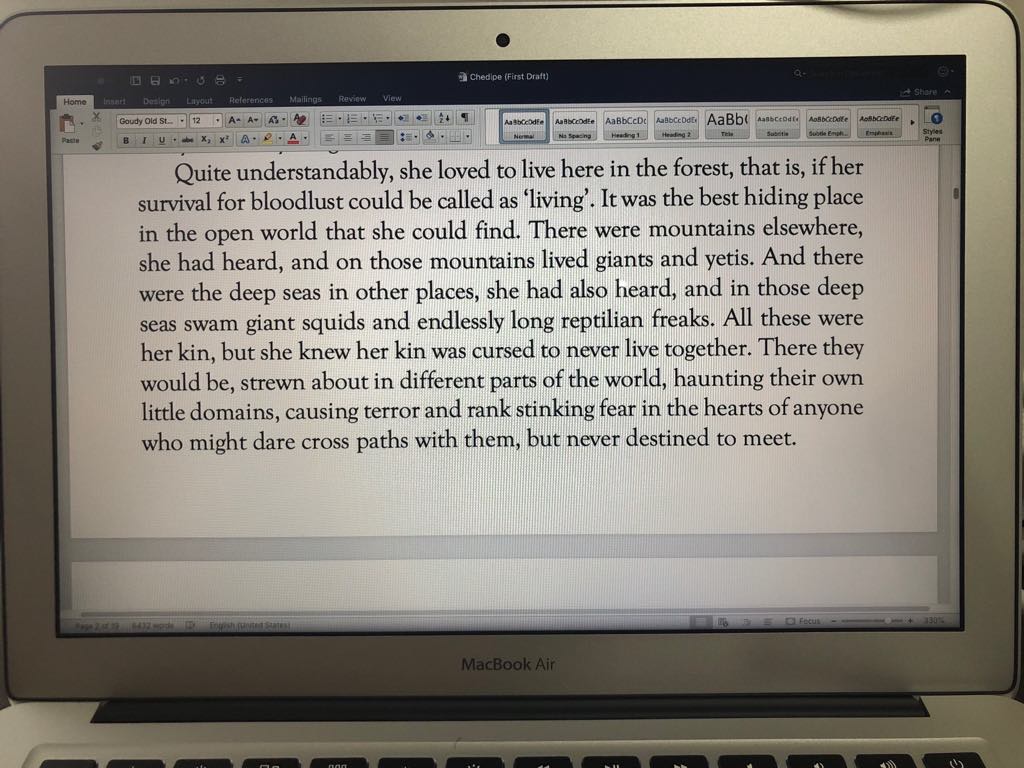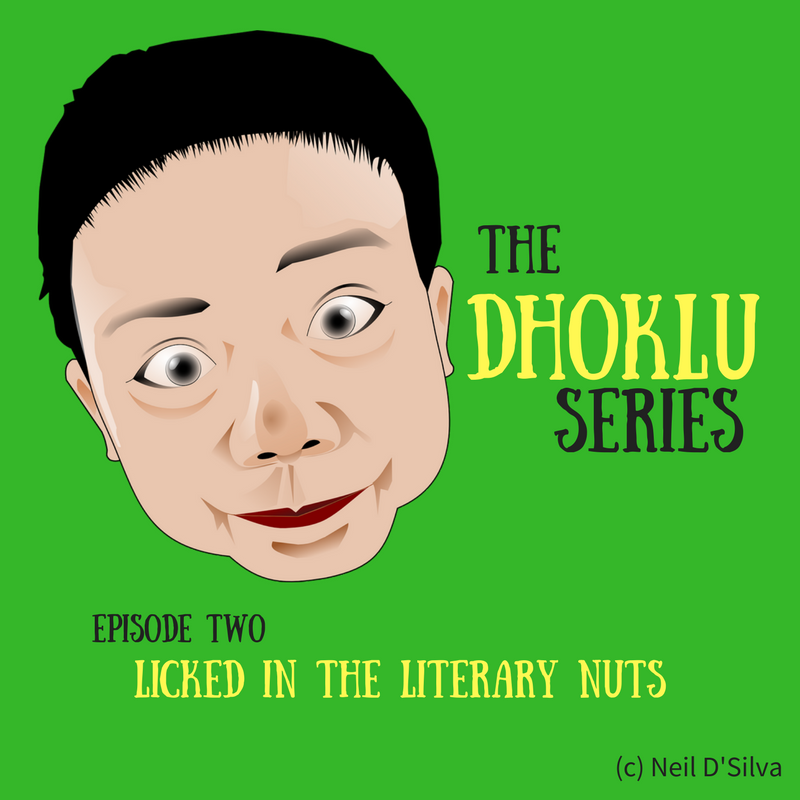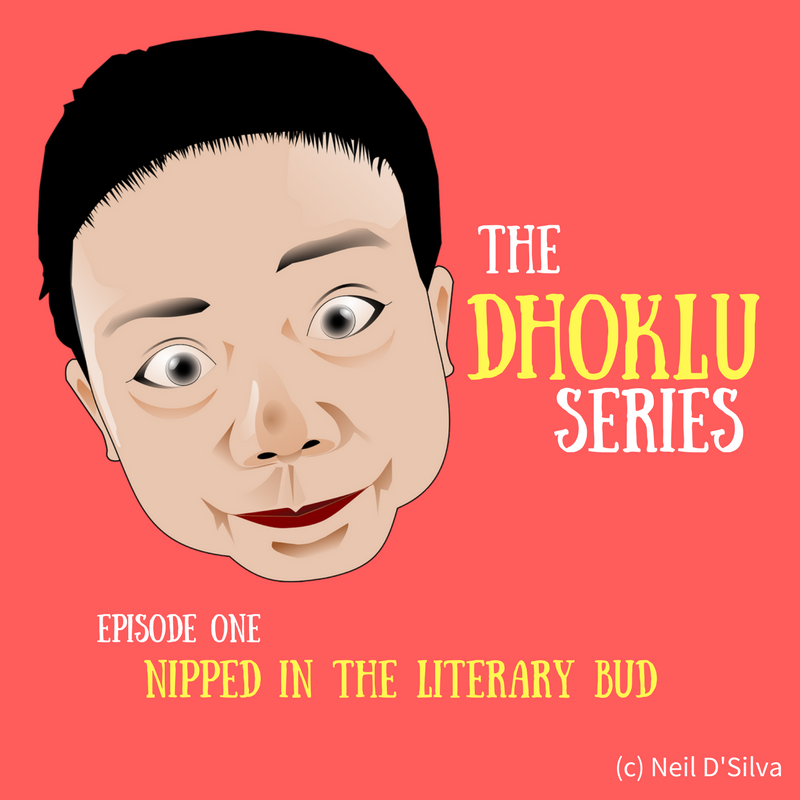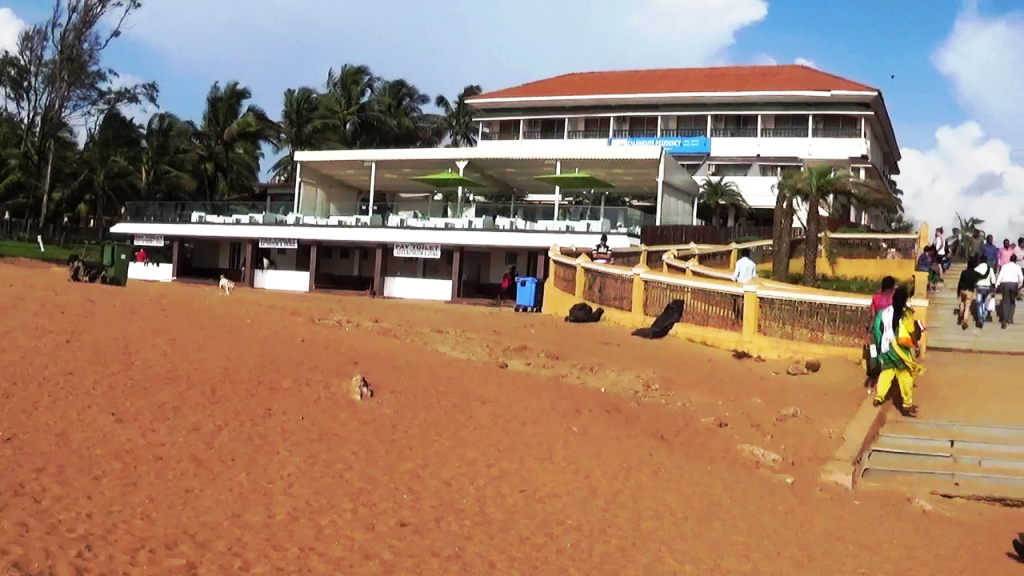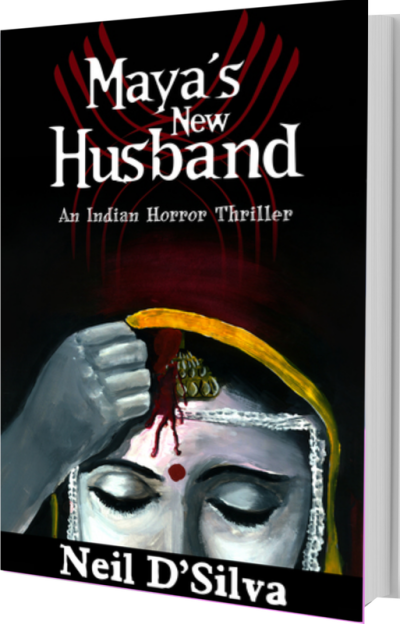
Suicide Point | Short Story by Neil D’Silva
Part 2
(This is a two-part story. Read the first part here.)
“How can you promise that?” she asked.
“I know,” said Sahil. He sat down next to her. “I have a wife whom I love dearly. More than anything else in this world. One year ago, we found out that we cannot have kids. There’s something wrong with her uterus. It shattered her. I have never told her, but it shattered me too. I cannot tell her that, can I? I have to be the strong one. But becoming a father would have meant so much to me. Anyway, we are fine now. We thought there was nothing left in our existence, but here we are, each day finding new meaning in our lives. It’s her birthday today, by the way.”
“I see,” said the woman. “A happy birthday to her. She’s a lucky one indeed! What’s her name?”
“Mala,” said Sahil. He was sharing personal details with a strange woman on a strange night, but if the conversation could veer her out of her suicidal thoughts, it could be his good deed for the day.
“Why aren’t you with her on her birthday then?” asked Sumanlata. “Is she in the car?”
“No,” said Sahil. “I am going to her. I hope I can make it in time.”
“Then you must go. Don’t wait out with me.”
“I cannot leave you like this,” said Sahil. “I cannot leave a woman to end her life this way. I won’t ever find peace if I did that. It would be like having blood on my hands.”
“Oh!” said the woman. “Don’t say it like that. I don’t want my decision to affect your plans. You seem to be a nice man. You carry on.”
“Does that mean you are going back home too?”
“No,” she said. “There is nowhere I’d like to go to at the moment. I’d better wait out here for a while.”
Sahil looked at his watch. “Okay,” he decided. “I’ll hang around for a few minutes more. Let’s see if I can talk you into going home. Where do you live, by the way?”
“In the city. About half an hour from here.”
“How did you come here? Is there a car?”
She pointed towards the bushes. “It’s parked in there. Your car is a nice one, you know.”
“Thanks,” he said. “It’s Mala’s choice. She wanted the more expensive one.” He smiled.
“I see,” she said. “Does Mala work?”
“No.”
“How did you two meet? I’d like to hear the tale,” she said, “that is, if you really intend to sit here.”
“Sure,” he said. “It’s one of my favorite tales, you know. I was this geeky nerdy person in college, oiled hair and buttoned-down shirts and all, totally into studies, and I bumped into this girl in the canteen. Quite literally, you know, I dropped her books like it happens in the movies. There was a moment, but then I reminded myself I was in my final year of engineering. I could not afford distractions. It was she who took the lead though. She chased me till I fell for her—not literally this time, fell in love I mean.”
“Interesting!” she said. “Did you complete your engineering?”
Sahil laughed. “No! That never happened. That was the year I discovered what love meant. We got married and here we are.”
“So, what do you work as?”
“I tried to start a business with digital electronics.”
“Oh, a brainy one! I like to meet a brainy one. What happened to the business?”
“It didn’t work. Now between things.”
“Why did it not work?”
“I don’t know. Maybe I was too depressed. Who knows?”
“Because of the news of your wife?”
Sahil looked at her.
“The uterus, I mean?”
“Yeah, could be,” said Sahil.
“But that does not matter, does it? So what if you could not complete your education or become a rich man. You still have your wife, don’t you?”
“Don’t say it like that,” said Sahil. “I have no regrets at all. She’s the best thing to happen to me. Money isn’t everything, you know?”
“Of course, it isn’t. Love is. Look at me; I am still looking for love.”
“Are you okay now?” Sahil asked. “I hope your mind is easier.”
“I’m feeling better, that’s for sure,” said the woman. “You are such a wonderful storyteller. I can almost see Mala. So, how is she? Long hair or short?”
“Short. She’s almost a boy,” Sahil laughed.
“What kind of clothes does she like?”
“She likes casual. Oh, she wouldn’t want to be caught dead in a saree.”
“Why? Sarees are nice,” the woman said. “I love sarees. See this white one I’m wearing.”
“Yeah, that’s a bit strange. Aren’t white sarees usually worn by—”
“—widows,” she completed. “Yes, say it. I don’t mind. I am a widow already, isn’t it? He’s gone.” A teardrop formed again in her almost dried up eye.
“I’m sorry I said that,” Sahil said.
“Forget it,” she said. “You should be going now. Mala will miss you.”
“Yes, she will, but it is all right,” he said. “I can tell her I was held up.”
“You will lie to her? Why?”
“She’d be upset if I told her the real thing.”
“Why?” the woman asked. “Are we doing anything that’s bad?”
“You don’t understand,” said Sahil. “We are in a situation that’s easy to misinterpret. Anyone would.”
“Then go.”
“I don’t know,” said Sahil. “I am enjoying this conversation actually. I have never spoken about these things with anyone. You are helping me see the light.”
“Am I?” she said. “About Mala, she seems to have you on a tight leash.”
Sahil looked at the woman. The tears had again gone, and there was a genuinely curious look on her face. “How did you arrive at that conclusion?”
“It’s obvious, isn’t it?” said the woman. “You are rushing to catch her on her birthday. Isn’t it because you are worried she’d be angry at you? Driving at this hour means you couldn’t get out of your work the whole day. Now you tell me you need to lie to her. All this, despite the fact that she chased you into marriage and not you?”
He shot an ugly look at the woman. He should have got up at that moment and stormed out of the conversation but a part of him wanted more of this self-analysis. Such things had crossed his mind earlier, but he hadn’t dared to think about them further.
“Come to think of it,” he said, “Mala is a bossy one. She did send me a letter in blood when she was, you know, pursuing me.”
“That’s horrid!”
“It was. I was repulsed actually.”
“Why doesn’t she work? It might be difficult for you, right?”
“She’s not the working type,” said Sahil.
“How does she spend her day then?”
“Watching television mostly. Sometimes she goes to her friends’ houses and has parties.”
“Funny how one person has to do all the work,” said the woman. “I mean, it’s expensive, isn’t it? A house in the city is terribly expensive. Do you have your own house?”
“Yes. It’s on installments.”
“Good Lord! How many years more?”
“Fifteen.”
“That’s an age!” she said. “Do you earn enough?”
“Most times, yes,” said Sahil. “But there’s little else I can do. Like I cannot get her the gifts she wants or take her to the places she wants to go to.” He buried his head in his hands. “The installment decision was horrible. It has fucked up my life. There is this constant fear that I won’t be able to pay and will land in jail. Am I a bad husband?”
“Of course you are not!” she said. “But you have to set a few things in order. You need to make sure you earn more. Ask your wife to contribute too. As it is, you won’t have children to look after.”
“Oh God!” Sahil let out a big breath at the reminder. “I’m in such a miserable condition. I am working my ass off to retain this house, this life, and what for? There is no one to leave this to. One day, the fuse will blow and that’s it. I am gone. What is the use of all this?”
“It will work out fine,” she said, holding his hand. “There’s a solution to everything.”
“There isn’t for this,” said Sahil. “What have I put myself into? Everywhere I see I am trapped. This loan, this loneliness, this marriage…”
There was a moment of silence.
“I’m sorry,” he said. “I didn’t mean it that way. I am not trapped in my marriage. Am I?”
She passed her fingers through his hair.
“Am I?” he repeated.
“Once you are in, you are in,” she said. “You know what? I think we are sailing in the same boat. The only difference is that you are married. I am not. You are trapped and so am I. Once my belly starts showing, people will want to know whose child it is. What do I tell them?”
“There’s no way out,” he said. “Not for me, at least.”
“Now you understand why I am here?” she said. “There is something in this—ending your life. You are free from all these problems. What’s the meaning of this existence anyway? What are you going to get out of it? I don’t want to bring this child into the world either because all he or she is going to face is ridicule.”
Sahil had tears in his eyes now. How had the night suddenly become darker? Gloomier? “And to think I bought a diamond bracelet for her. I spent my three months’ earnings on that fucking thing.”
“It could be the last you spend on her,” said the woman.
“What do you mean?”
The woman got up and took Sahil’s hand. He got up too, and she led him into the thicket behind them. There it was—the gnarled banyan tree that was the terminal point of a dozen and a half disappointed lives so far.
“If you are brave, we can end it all,” she said.
He looked at her aghast at first, and then slowly mellowed down into an expression of understanding.
“I have done the research,” she said. “The noose is already put up. I was sitting there crying because I had a weak moment, but now I am sure. I am going to end it.”
He did not say anything. He noticed the midnight hour had passed.
“Do you want to do it together? You can use the noose. I will tie my saree on the other branch and hang myself from there,” she said.
Sahil’s life passed in front of his eyes. The mask had been taken off. So far, he had deluded himself into thinking he led an ideal urban existence, but he now saw the muck that lay beneath the glossy exterior. The reality of his life stared at him now, and there was no mistaking the termite-ridden ruination of it.
“Yes,” he said. “It will put me out of all problems.”
She went behind the tree and took off her saree. “I’ll put this up too,” she said. She climbed up the twisted branch and hung the makeshift noose from a low-hanging branch. Then she came down and placed a log under the two nooses.
“We climb up this log,” she said, “put the noose around our necks and then kick the log away. As it will roll away, our lives will be gone too. It is easy and the most painless way out, believe me. You go up first.”
Sahil put his foot on the log. The log rolled and he fell. Then she held it with her foot and asked him to try again. He balanced himself more carefully now, and took small steps until he reached the noose. She started coming up too.
“Look ahead and put the noose around your neck,” she said. “I am doing the same.”
With trembling fingers, Sahil placed the noose around his neck.
“At the count of three, okay?” she said. Sahil stretched his hand to hold hers, but he could reach her.
“Okay,” he said.
“Here goes then… one… two… three!”
The log rolled instantly. The noose, which was until now a loose coil around his neck, suddenly tightened with all its merciless brutality, and bit into the flesh of Sahil’s neck. His neck choked, completely shutting off his windpipe. His nostrils took in a huge amount of air but there was no way for it to reach his lungs.
He heard a bone in his throat snap.
And just as life was going out of him, he saw the woman standing right in front of him, laughing with a menacing expression in her bloodshot eyes.
“Surprised?” she said as his eyes closed. “Don’t be. Things like death cannot kill me.”
The next morning’s newspapers bore a headline:
Nineteenth suicide at Suicide Point.
END
Read more gut-wrenching stories from Neil D’Silva in his horror book collections. Click on the images below for the Amazon links.
